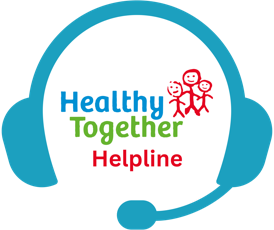After having your baby, some new mums may experience health problems. Take a look at some of the most common health problems experienced after birth alongside the help and support you can get from your midwife.
Scroll through the sections below and click on the title for more information:
What this could mean: Urine infection or retention
What might your midwife do to help?: Advise you to take a warm bath or shower. If this does not work, they may need to insert a catheter.
What this could mean: Muscular/skeletal problem
What might your midwife do to help?: Give general advice on posture and lifting techniques. You may be offered pain relief.
What this could mean: Infection
What might your midwife do to help?: Check your perineum and check for signs of infection or problems with healing. Advise use of ice/cooling packs and paracetamol. If needed, refer for further tests.
What this could mean: Tiredness and or dehydration. Complication following epidural. Raised blood pressure
What might your midwife do to help?: Advise you to increase your fluid intake. Advise you if you had epidural/spinal anaesthesia to report a severe headache. Check your blood pressure. For tension/migraine headaches, offer you advice on relaxation and avoiding factors linked with headaches.
What this could mean: Baby blues, postnatal depression
What might your midwife do to help?: Encourage you to take gentle exercise. Take time to rest. Get help with caring for your baby and talk to someone. Make sure you have access to support networks. If there is no improvement after 10 to 14 days, you may need further professional assessment.
What this could mean: Anaemia
What might your midwife do to help?: Ask about your general well-being and offer advice on diet and exercise. Check for an underlying cause. Measure iron levels and, if low, think about prescribing iron supplements.
What this could mean: Urinary incontinence
What might your midwife do to help?: Advise how to do pelvic floor exercises. If symptoms do not improve, refer you for further treatment
What might your midwife do to help?: Assess diet and fluid intake. If change in diet does not work, advise use of a laxative
What might your midwife do to help?: Offer to check rectal area. Offer treatments and further assessment if needed. Advise increase in fluid intake and fibre in your diet to avoid constipation
What might your midwife do to help?: Assess severity, duration and frequency of problem. If symptoms continue reassess and, if needed, refer you for medical advice
What might your midwife do to help?: Offer to check your perineum. Advise use of water-based lubricant. If problem persists, consider further assessment
Potentially serious health conditions
What this could mean: Haemorrhage
What should happen: Call 999
What this could mean: Infection- Take your temperature and if it is more than 38°C, contact the Maternity Assessment Unit
What should happen: Contact Maternity Assessment Unit
What this could mean: Pre-eclampsia/eclampsia- Your blood pressure needs to be checked urgently. You may need further tests and treatment
What should happen: Contact Maternity Assessment Unit
What this could mean: Pulmonary embolism (blood clot)
What should happen: Call 999
Leicestershire Partnership NHS Trust is responsible for the writing, publishing and updating of the content on this page.

Leicestershire Partnership NHS Trust runs a confidential secure text messaging service for parents of children aged 0-19 years called Chat Health. The service operates Monday to Friday between 9am and 5pm, excluding bank holidays. All texts will be responded to by a public health nurse (health visitor/school nurse) within 24 hours. Outside of the service working hours, you’ll receive a message back to inform you that your text will be responded to once the line reopens.
-
Leicester City:
text
07520 615381 -
Leicestershire & Rutland:
text
07520 615382

Leicestershire Partnership NHS Trust runs the Healthy Together Helpline for parents and carers in Leicester, Leicestershire and Rutland. The Helpline’s qualified health and administrative professionals offer easy to access, safe and free advice, support and signposting. Calls are answered from 9am – 4.30pm on weekdays, excluding bank holidays. Calls are charged at the same rate as calling a standard landline number.
-
Leicester, Leicestershire & Rutland:
call 0300 300 3001

Should you require urgent health advice in the meantime, please contact your GP, visit an NHS walk-in centre or call NHS 111. For emergencies, dial 999 or visit A&E.




